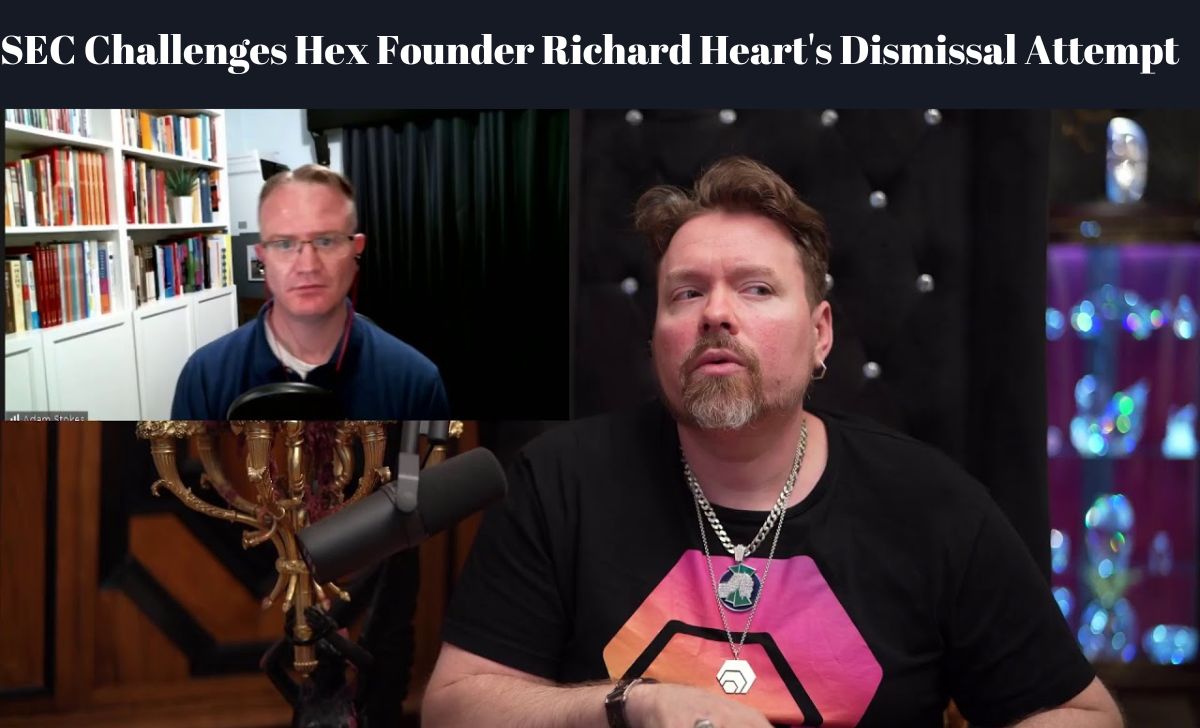In response to Hex founder Richard Heart’s efforts to dismiss the lawsuit against him, the U.S. Securities and Exchange Commission (SEC) has asserted its jurisdiction to pursue the case. The SEC urged the U.S. District Court for the Eastern District of New York to deny Heart’s motion to dismiss. The agency’s filing, dated July 8, was made public on Thursday.
The SEC lawyers argued that Heart’s motion ignored the well-substantiated allegations in the complaint and applicable laws. The SEC sued Richard Schueler, also known as Richard Heart, in 2023, accusing him of raising over $1 billion through unregistered securities offerings and using the funds to purchase luxury items, including a rare black diamond valued at over $4 million.
Read more: Grayscale Unveils New AVAX Token Fund
According to the SEC, Hex has a staking feature that allows investors to lock up Hex tokens in exchange for more tokens later. Heart allegedly promoted a 38% return on staked Hex tokens, but the SEC claimed much of the demand for Hex was artificially generated, with most of the ETH deposited being “recycled” through a crypto trading platform.
Heart’s defense argued that he did not commit fraud because he did not make any promises to investors. They claimed the SEC’s fraud accusations were baseless, as the complaint did not allege any deceptive conduct or promises regarding the use of assets.
However, the SEC countered that Heart defrauded PulseChain investors by using their funds for personal luxury purchases, such as watches, cars and the black diamond, knowing these were not bought with legitimate profits but with investor money.

Heart’s legal team also argued that his residence abroad should exempt him from U.S. jurisdiction. The SEC rejected this, pointing to Heart’s in-person appearance in Miami, virtual appearances in Las Vegas and extensive marketing efforts targeting U.S. investors as evidence of his engagement with the U.S. market.
The defense maintained that Hex, PulseChain and Pulse X are decentralized blockchain technologies and not securities, likening Hex to Bitcoin, which the SEC does not consider a security. They argued that the SEC failed to demonstrate that these tokens were intended for anything other than holding in digital wallets on the Ethereum network.
The SEC, however, reiterated that Heart sold Hex, Pulse and Pulse X as investment contracts, thereby classifying them as securities. The next court hearing is scheduled for October 24.
Cre: theblock.

I’m Jessi Lee, currently living in Singapore. I am currently working as a trader for AZCoin company, with 5 years of experience in the cryptocurrency market, I hope to bring you useful information and knowledge about virtual currency investment.
Email: [email protected]











